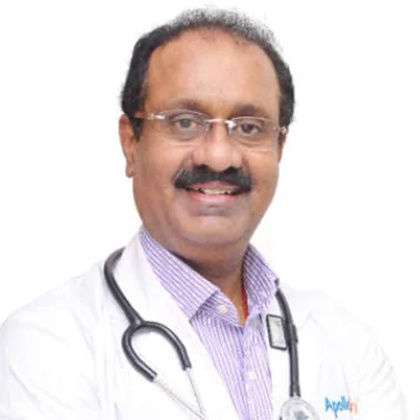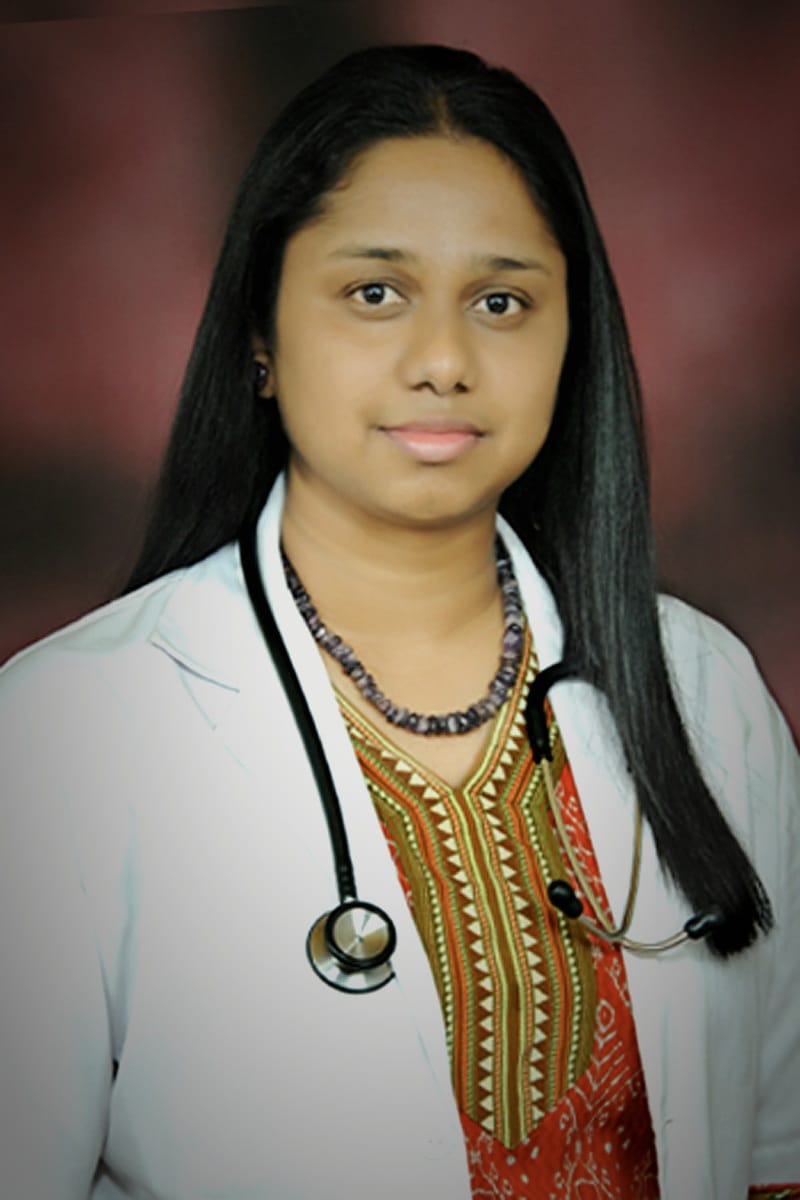Lung Ailments Consultant Pulmonologist
Consult a pulmonologist for expert care on lung ailments like asthma, COPD, and pulmonary fibrosis. Learn about symptoms, diagnosis, treatments, and prevention for better lung health.

Written by Dr.Sonia Bhatt
Last updated on 13th Jan, 2026
Introduction
Lung health is a critical component of overall well-being, as the lungs are responsible for supplying oxygen to the body and expelling carbon dioxide. Any impairment in lung function can lead to serious health complications and impact quality of life. While mild respiratory issues may resolve on their own, chronic or severe lung conditions require specialised medical attention. This is where pulmonologists play a vital role. This article explores the significance of pulmonologists, common lung diseases, their causes, diagnostic methods, and treatment options available to ensure optimal lung health.
Understanding the Role of a Pulmonologist
Pulmonologists are medical professionals who specialise in diagnosing, treating, and managing diseases affecting the respiratory system. With lung diseases on the rise due to environmental pollutants, smoking, and other risk factors, consulting a pulmonologist for early diagnosis and appropriate management is essential.
1. What does a pulmonologist do?
A pulmonologist is a specialist in respiratory health, focusing on diseases that affect the lungs and airways. Their expertise includes:
Diagnosing and treating chronic respiratory conditions such as asthma, COPD, and pulmonary fibrosis.
Performing lung function tests to assess breathing issues.
Providing preventive care and guidance for individuals at high risk of lung diseases.
Managing critical conditions such as respiratory failure and pulmonary infections.
2. Importance of Consulting a Pulmonologist for Lung Ailments
Respiratory conditions can be progressive, meaning they worsen over time if left untreated. Early diagnosis and intervention by a pulmonologist can:
Help manage symptoms effectively.
Prevent further lung damage.
Improve quality of life.
Reduce hospitalisations and complications.
If you experience persistent cough, breathlessness, or chest discomfort, seeking consultation with a pulmonologist is recommended.
Common Lung Ailments
Lung diseases can range from mild to severe and may require long-term management. Some of the most common conditions include:
1. Asthma
Asthma is a chronic respiratory condition that causes inflammation and narrowing of the airways, making breathing difficult. It is triggered by various environmental and genetic factors, including allergens (such as pollen, dust mites, and pet dander), air pollution, respiratory infections, exercise, cold air, and even strong emotions or stress.
Symptoms of asthma include:
Wheezing – A high-pitched whistling sound while breathing, especially during exhalation.
Coughing – Often worse at night or early in the morning, sometimes leading to disrupted sleep.
Shortness of breath – Difficulty breathing, which may be worsened by physical exertion or exposure to triggers.
Chest tightness – A feeling of pressure or constriction in the chest, making it uncomfortable to breathe.
2. Chronic Obstructive Pulmonary Disease (COPD)
COPD is an umbrella term that encompasses progressive lung diseases such as chronic bronchitis and emphysema. It is a debilitating condition that leads to airflow obstruction, making breathing increasingly difficult over time. COPD is primarily caused by long-term smoking, exposure to air pollution, chemical fumes, dust, or a rare genetic condition known as alpha-1 antitrypsin deficiency.
Symptoms of COPD:
Chronic cough – A persistent cough lasting for months or years, often producing mucus (phlegm).
Excessive mucus production – The body produces extra mucus to trap and clear irritants from the lungs.
Breathlessness (dyspnoea) – Difficulty breathing, especially during physical activities.
Fatigue – Feeling exhausted due to reduced oxygen supply to the body.
Frequent respiratory infections – COPD weakens the lungs, making them more susceptible to infections like pneumonia and bronchitis.
3. Pulmonary Fibrosis
Pulmonary fibrosis is a serious lung condition where the lung tissue becomes scarred and thickened, leading to stiffness and reduced oxygen exchange. Over time, this scarring makes it increasingly difficult for the lungs to function properly, leading to progressive shortness of breath.
Causes of Pulmonary Fibrosis:
Environmental exposure – Prolonged exposure to harmful substances such as silica dust, asbestos, coal dust, or industrial chemicals.
Certain medications – Some chemotherapy drugs, heart medications, or antibiotics may contribute to lung scarring.
Autoimmune diseases – Conditions like rheumatoid arthritis, scleroderma, and lupus can lead to lung inflammation and fibrosis.
Idiopathic pulmonary fibrosis (IPF) – In many cases, the exact cause is unknown, and the disease is classified as idiopathic.
Symptoms of Pulmonary Fibrosis:
Chronic dry cough – A persistent, non-productive cough that does not go away.
Shortness of breath – Initially occurring during physical exertion but gradually worsening over time.
Fatigue – Feeling constantly tired due to reduced oxygen levels in the body.
Unexplained weight loss – May occur as the disease progresses.
Clubbing of fingers – Enlargement of fingertips due to chronic low oxygen levels.
Causes and Risk Factors for Lung Diseases
Lung diseases can develop due to various factors, including:
Smoking: The leading cause of COPD and lung cancer.
Environmental Exposure: Pollution, occupational hazards (e.g., dust, chemicals, fumes).
Genetic Factors: Certain hereditary conditions increase susceptibility to lung diseases.
Infections: Respiratory infections like pneumonia or tuberculosis can damage lung tissue.
Pre-existing Conditions: Asthma, autoimmune diseases, or chronic illnesses can contribute to lung complications.
Symptoms Indicative of Lung Problems
Early detection of lung disease can prevent complications. Common symptoms include:
Persistent cough that lasts more than three weeks.
Shortness of breath, even during routine activities.
Wheezing or noisy breathing.
Chest pain or tightness.
Chronic mucus production.
Frequent respiratory infections.
Unexplained fatigue or weight loss. If these symptoms persist, medical evaluation is essential to determine the underlying cause.
Diagnostic Tests for Lung Diseases
To diagnose lung conditions accurately, pulmonologists rely on various diagnostic tools:
1. Spirometry
A spirometry test measures lung function by assessing airflow in and out of the lungs. It helps diagnose asthma, COPD, and other obstructive lung diseases by determining the forced expiratory volume (FEV1) and forced vital capacity (FVC).
2. Chest X-rays and CT scans
Imaging tests provide detailed views of the lungs and detect abnormalities such as inflammation, infections, tumours, or fibrosis. High-resolution CT scans offer more precise images, especially for conditions like pulmonary fibrosis and lung cancer.
Treatment Options for Lung Ailments
Treatment for lung diseases depends on the severity and type of condition. Common approaches include:
1. Medications and Inhalers
Lung diseases are commonly treated with medications, including:
Bronchodilators: Help relax airway muscles and improve breathing (e.g., salbutamol, tiotropium).
Corticosteroids: Reduce inflammation in the airways (e.g., prednisone, fluticasone).
Antibiotics: Used to treat bacterial lung infections.
Oxygen Therapy: Recommended for advanced COPD or severe lung conditions.
2. Pulmonary Rehabilitation
Pulmonary rehabilitation is a specialised therapy designed to improve lung function through:
Supervised exercise programs.
Breathing techniques and relaxation exercises.
Nutritional guidance.
Psychological support to manage anxiety and depression related to breathing difficulties.
Lifestyle Changes to Improve Lung Health
Adopting a healthy lifestyle is key to maintaining good lung function and preventing respiratory illnesses. Recommended changes include:
Quitting Smoking: Smoking cessation is the most effective way to prevent and manage lung diseases.
Regular Exercise: Physical activity strengthens lung capacity and overall endurance.
Maintaining a Healthy Diet: A diet rich in antioxidants and essential nutrients supports lung health.
Avoiding Pollutants: Minimising exposure to air pollution and occupational hazards.
Practising Breathing Exercises: Techniques such as pursed-lip breathing can enhance lung efficiency.
Preventive Measures for Lung Diseases
Taking proactive steps can help reduce the risk of developing lung conditions. Preventive strategies include:
Vaccinations: Annual flu shots and pneumococcal vaccines lower the risk of respiratory infections.
Hand Hygiene: Washing hands frequently to prevent viral and bacterial infections.
Avoiding Triggers: Managing allergies and environmental exposures that exacerbate lung conditions.
Regular Health Check-ups: Routine medical assessments help in early detection and management of lung diseases.
Conclusion
Lung diseases can have a profound impact on daily life, but early diagnosis, appropriate treatment, and lifestyle changes can help manage symptoms effectively. Consulting a pulmonologist for persistent respiratory symptoms ensures timely intervention and improves long-term outcomes. By adopting preventive measures and maintaining a healthy lifestyle, individuals can protect their lungs and enhance overall well-being. If you experience ongoing respiratory issues, seeking medical advice is essential for optimal lung health and quality of life.
Consult Top Respiratory Disease Specialist
Consult Top Respiratory Disease Specialist
Dr. Preeti Kathail
General Physician/ Internal Medicine Specialist
17 Years • MBBS, PGDHHM
Bangalore
Apollo Clinic Bellandur, Bangalore
Dr. Naseeha Mohammed S V
Pulmonology Respiratory Medicine Specialist
6 Years • MBBS, MD ,DNB Respiratory Medicine
Bengaluru
Apollo Clinic, Sarjapur Road, Bengaluru

Dr Ishan Gupta
Pulmonology Respiratory Medicine Specialist
9 Years • MBBS, DNB RESPIRATORY DISEASES
Delhi
Apollo Hospitals Indraprastha, Delhi
(75+ Patients)

Dr. Suresh G
General Physician/ Internal Medicine Specialist
25 Years • MBBS, MD
Bangalore
Apollo Clinic Bellandur, Bangalore
(225+ Patients)

Dr. Chaithanya R
Internal Medicine Specialist Diabetologist
16 Years • MBBS, MD Internal Medicine, Fellowship in Diabetes(UK), CCEBDM(PHFI)
Bangalore
Apollo Clinic Bellandur, Bangalore
(75+ Patients)

.webp)
